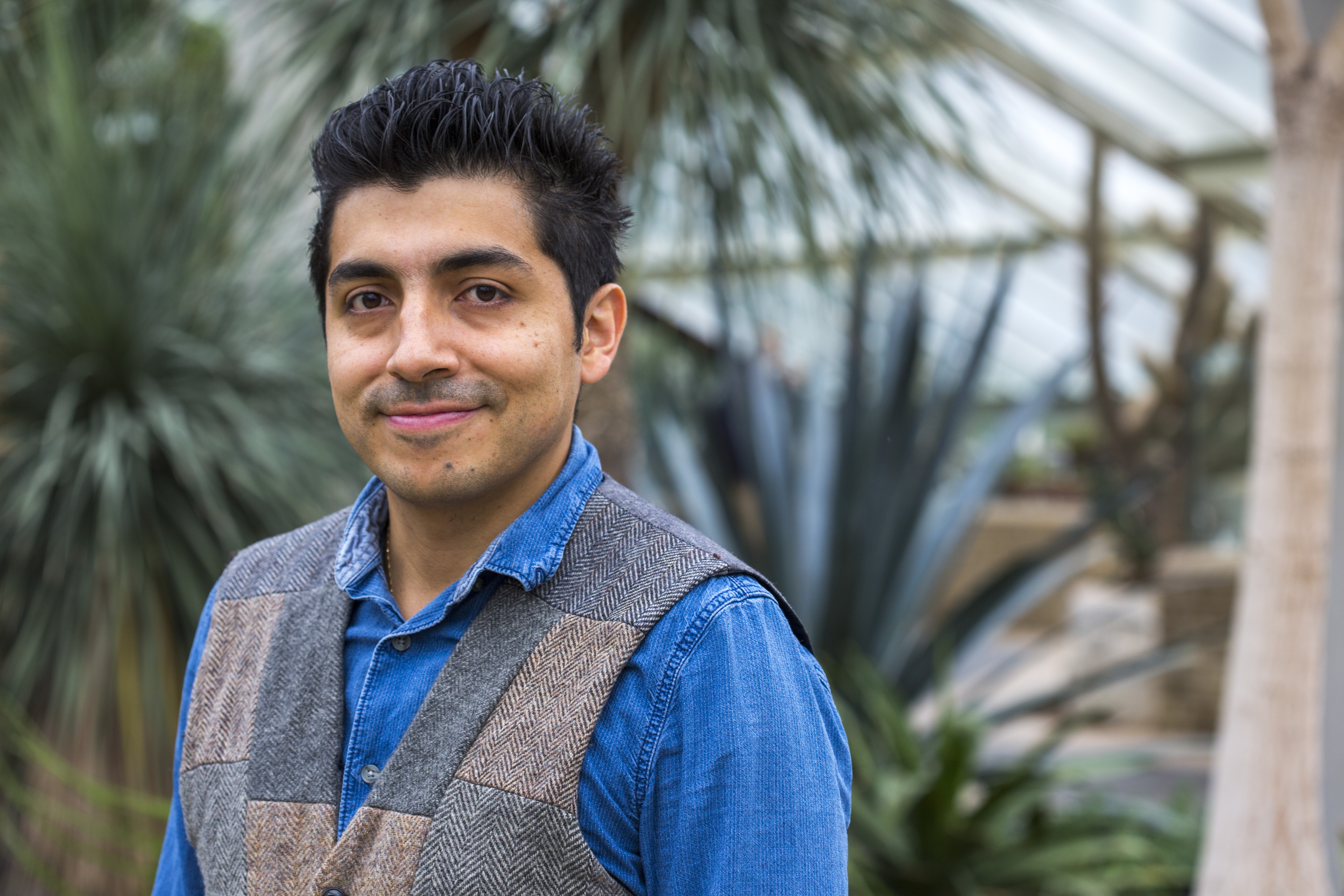My first memory was…mountains, lush landscapes with cold streams of clear water, and blue sunny skies on a family weekend trip to the outskirts of Bogotá. I grew up with my parents until I was 12 years old. We had to leave the capital after a financial crisis, moving to my aunt and uncle’s home in Sopó. There, I lived the best years of my teenage life, close to the mountains where I developed a deep love for páramo plants and ultimately orchids.
From my mother I inherited…her kindness. From my father, his generosity. My wife has taught me that life is a rich contrast of colours and that often, things are not just black or white.
The most useful advice someone gave me is..."No pain, no gain." I’ve heard this countless times over the years, whether directly given to me or overheard on the street.
One of the most important things that happened to me was meeting a very inspiring countryside person, Gamaliel Ríos, who taught me the basics of orchid taxonomy. Despite having little formal education, he could identify orchids in the field better than any of my university botany professors. His passion for orchids deeply influenced me and set me on the path that led to my current career.
Growing up I imagined London to be a place where everyone dressed in suits, carried umbrellas, and using cane sticks and drank tea every day at 4pm as Big Ben chimed. I found a city totally multicultural, so huge, lively and full of contrasts! A place impossible to be bored in London. I spent a good amount of my first year learning the social "do’s" and “don’ts”, sightseeing and enjoying London’s many wonders.
My journey as a plant scientist began with a deep fascination for the natural world, particularly the mysterious and intricate beauty of orchids. Initially aiming to become an agronomist, I discovered my passion for botany, and spent my graduate studies focused on understanding the mechanisms driving plant evolution over long temporal scales. I saw the position at Kew advertised and managed to secure it.
I love…being able to see, discover, and understand the intricate beauty and mysteries of the natural world and sharing this knowledge with colleagues, the general community, and plant enthusiasts. I also get really motivated by issues of biodiversity loss and food security and hoping that my research can lead to tangible, positive impacts.
The biggest challenges for me were... lack of financial stability and access to high-quality education back home. I worked as a waiter and kitchen porter to afford three meals a day and took out a loan from the Ministry of Education in Colombia to complete my undergraduate studies. Eventually, I secured a scholarship for my graduate studies abroad. Then in the UK Getting a work permit was a challenge…and expensive!
I discovered that the coca tree (from which Cocaine is made)... predates the arrival of humans in South America by hundreds of thousands of years and was a source of vitamins, minerals, and medicines used for thousands of years by indigenous people. However, excessive regulations have restricted even traditional uses of this leaf, which have nothing to do with the illegal drug trade. What’s most shocking is how understudied and misunderstood this sacred plant is; we don’t even know how many species of coca exist or how they evolved.
My Latin heritage provides me with...a unique perspective that shapes my approach to scientific research. The science produced in the Global South offers distinct perspectives and local contexts that are often overlooked in global research. I understand the challenges that directly affect our communities, allowing me to develop research that is more relevant and effective. The biodiversity and ecosystems of the Global South are among the most diverse in the world. As local researchers, we possess a deep understanding of these resources, which is crucial not only for the conservation and sustainable use of biodiversity but also for innovations in fields such as medicine, agriculture, and biotechnology. This deep connection to our environment and community gives my work a distinct and valuable perspective.
I find it tedious to engage with deep-seated prejudices and misinformed, irrational ideas. It's incredibly challenging and often frustrating to navigate discussions where arguments are not based on logic or evidence but are instead rooted in passion and unfounded beliefs.
Some funny things that have happened to me in London…I once received a lecture from a colleague about the “right” way to eat a scone, all while he stuffed crisps into his BLT sandwich. Another time, strolling through Kew Gardens with a Colombian friend who happens to be older than me, an elderly man randomly complimented me on the beauty of my "younger wife".
Over time I’ve learned…to listen more and speak less.
When I think of home I think about…the forests, nature, mountains, great food, and heartfelt people—lush landscapes. When I feel homesick I eat arepas at a food stall that comes to Kew market the first Sunday of every month (is called Mulata cuisine). I love it!
My favourite word in English is... “mate” (as in “can’t park there mate”).
The word I most dislike in English is... “Interesting”
My perfect Sunday in London is…going for a walk in the Wetlands, then heading over for brunch around Covent Garden (there’s a lovely Italian place called Baaria—they have an amazing croissant filled with pistachio cream!) or Piccadilly (Le Deli Robuchon there has a unique patisserie—a croissant in the shape of a cube filled with chocolate or pistachio). Then, I’d visit the British Museum (to see the exhibition on show) or any other museum (I love eating and museums!) or even catch a concert at the Royal Festival Hall.















